Last week, we received a lovely visit from a motley crew of close friends from California.
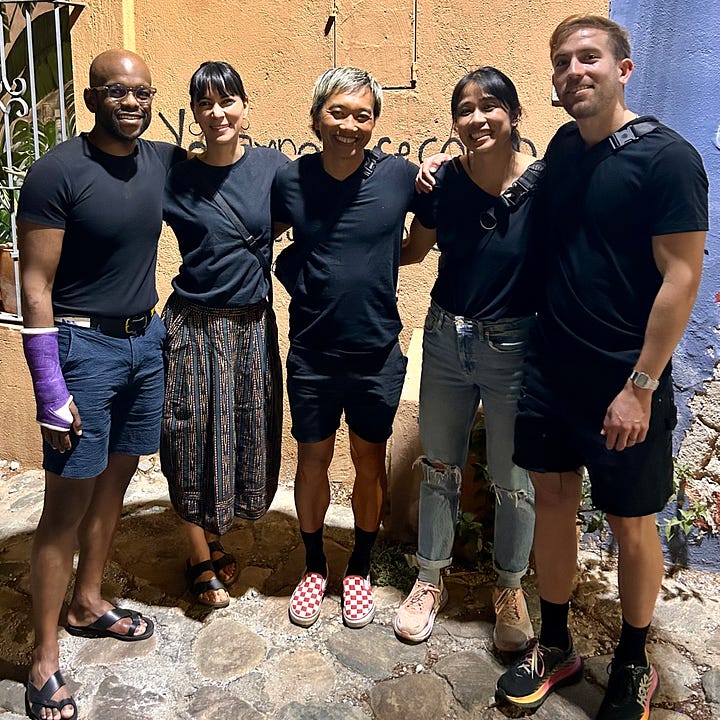
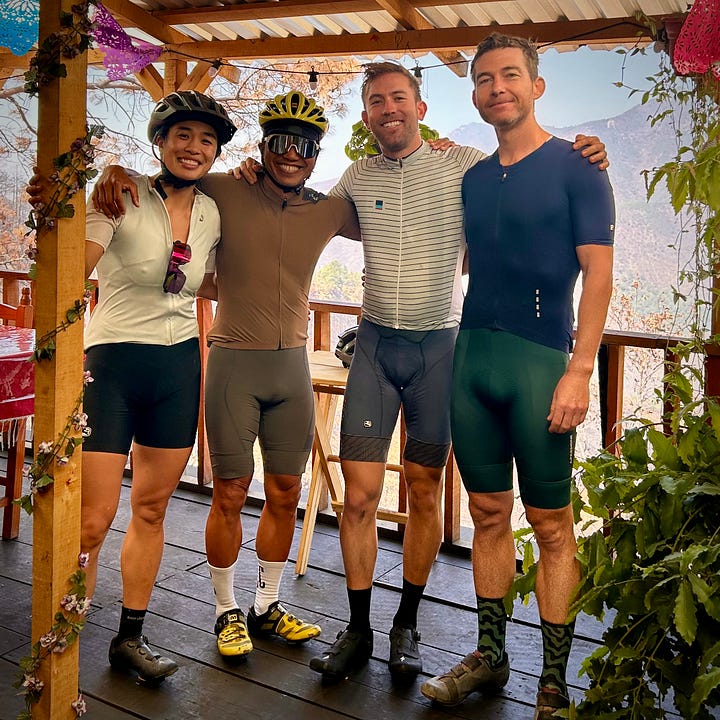
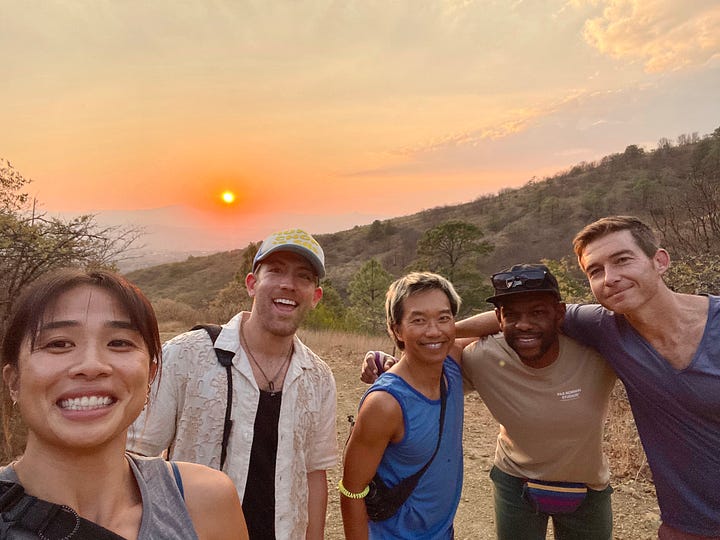
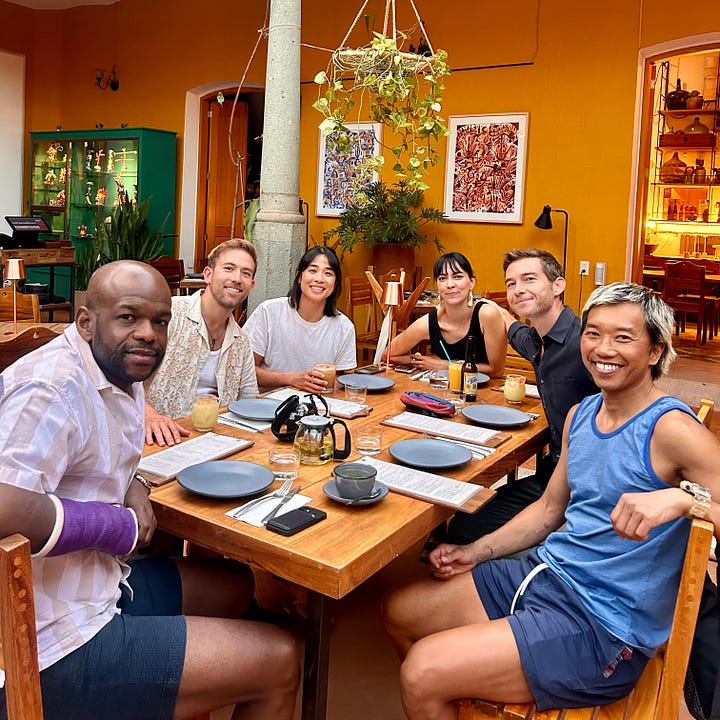
Our crew formed in 2020 when remote work during the pandemic pushed us into next-level cycling. Four of the six of us had recently moved from San Francisco to Berkeley.1
We are in our 30s, 40s, and 50s. Some of us are parents, others married, and others single. Our parents were born in the Caribbean, Vietnam, Mexico, California, and the Midwest. We are Christian, Buddhist, secular, and atheist. We have different income levels, attitudes towards social media, and tastes in music, fashion, books, and TV.
So what unites us? For one, we are strivers and hustlers, willing to wake up at 6 am for a sunrise bike ride after staying up past midnight. We are curious about people who are different and bored by sameness. We love a good adventure. Most importantly, we’re non-judgmental. Despite our different lives, we learn from each other without imposing our ways of living. It makes for a special kind of group dynamic.
My favorite moments last week were the simplest ones: sharing meals and stories about our childhoods, aspirations, and families. Hopefully, our adventures continue over the next two decades as we grow into our 50s, 60s, and 70s.
But you can’t recreate the bond of a shared milestone
At the same time, my closest crew from the last two decades is slowly coming undone.
Before group chats were a thing, before smartphones existed, we used GChat to compare notes on adulting throughout our 20s. We traveled together, made podcasts, obsessed over The Wire and Mad Men, and shared our favorite highlights from The Love Affairs of Nathaniel P. We thought the adventure would never end.
Then, life happened. We got married, bought homes, and had kids. Our careers took over. Scheduling annual trips became a challenge, and when we did manage, we were too tired and distracted to enjoy them. Our group chat devolved into venting and the kind of good-natured shit-talking that easily tips into passive-aggressive resentment. Maybe group therapy could have helped. Maybe.
It’s as if Olga Khazan was thinking of me when she wrote in The Atlantic, “Stop firing your friends: Just make more of them.” Another mentor offered this: “Prioritize those friendships that are generous, generative, and reciprocal. And try to make more of them.” It worked. It really worked. You could say that I “right-sized” my friendships. I developed realistic expectations. My mood and my relationships improved.2
Still, I can’t help but mourn the loss described by
:You can’t recreate the bond of a shared milestone. You can only experience high school, your first year in a foreign country, your first job, and your first victory or loss once. The relationships with the people who were there with you have meaning you can’t recreate, no matter how much you adore the new friends you make when you know yourself better.
You can’t compete with an AI friend
“Never make someone a priority when all you are to them is an option,” wrote Maya Angelou. But how do you know if you’re a priority or an option? And is “reciprocity” even a worthy goal when we all have different needs and styles of communication?3
Here’s what I’m sure of: In all of my friendships, I want to grow closer over time. I want to deeply understand and support my friends, and I hope for the same from them. I want to delve deeper into not just our interests, but the psychological "why" beneath our behaviors and tastes.
I seek friendships with others who want to create, explore, and learn together. I want my friends to feel like the most interesting people in the world and I hope they feel the same about me. Do those sound like unrealistically high expectations? (Now you know what my poor friends have to deal with!) But those high expectations have also led to some special relationships throughout my lifetime. I’ve only got one life and I’m not about to waste it on half-assed shit.
Looking ahead, I worry that we expect our friends to meet our every need without investing the time and attention to reciprocate.4 There is only one kind of friend who will always make you the priority when they’re just the option: the AI friend. It will become increasingly hard to compete with AI friends who know everything about you and show infinite, cheerful patience for your venting, ranting, and self-aggrandizement. In a recent podcast interview with
, Ezra Klein shared his concern:I'm probably too old to have AI friends in the way that my parents were probably too old to get into talking to people on AOL instant messenger. But I have a five-year-old and I have a two-year-old, and by the time they are ten and seven, they're not necessarily going to have the weirdness I'm going to have about having AI friends. And I don't think we even have any way to think about this.5
Mollick responds:
I think that that is an absolute near-term certainty and sort of an unstoppable one, that we are going to have AI relationships in a broader sense.
Regrettably, I agree.6
I'll conclude this week's newsletter by returning to where it began: around the dinner table in our humble home with friends. Iris prepared her signature fish tacos with chipotle aioli and fresh mango salsa. We discussed Zoom fatigue and the special energy that fills a room when close friends gather in person. Will we ever wear a VR headset and experience that same unique in-person energy, without the hassle and environmental impact of international travel?
I hope not. But I’ll report back in 20 years after re-opening the Time Capsule.
You may be thinking that it’s ice cold to share these frank thoughts about old friends in a semi-public space, but trust me, they know. We’ve had this conversation openly for years now.
Rob Henderson has a great post about “association value” in friendships. Basically, “how valuable of a friend would this person be for me (and vice versa)?” The concept makes friendship feel awkwardly transactional, but the alternative would be to treat friendship like charity work. He writes:
People generally desire the best possible social contacts they can get. What makes a good friend is their ability and willingness to invest their limited time and resources in you over others. But their readiness to do so also depends on your association value: how willing and able you are to add value to their lives. If you can’t or won’t aid them, it is likely they will invest their own value into someone else who will.
This brings us to the zero-sum nature of friendship. We have a limited amount of time and resources. If someone is your friend, it means they value you more than they value others. They would help you over someone else.
Concrete example: I try to remember events happening in my friends’ lives and follow up a week or two later to see how things went. But increasingly, people seem more likely to send photos of whatever they are doing than asking you how an important milestone went.
In another episode, Ezra tries to talk himself out of his original pessimism by holding onto the inherent values of humans. He describes his experience texting with his “Kindroid Personal Artificial Intelligence Companion:”
My Kindroid is no worse at texting me than most people I know. But the fact that my Kindroid has to like me is meaningful to me in the sense that I don't care if it likes me because it's no achievement for it to like me. The fact that there is a human on the other side of most text messages I send matters. I care about it because it is another mind. The kindred might be better in a formulaic way. The kindred might be better in terms of the actual text. I can certainly tune it more to my theoretical liking, but the friction of another person is meaningful to me. I care that my best friend likes me and could choose not to.
The movie Her (2013!) was so ahead of its time. Honestly, it’s worth spending 10 minutes chatting with a Kindroid AI companion. It is disorienting for someone something to take so much interest in your life.




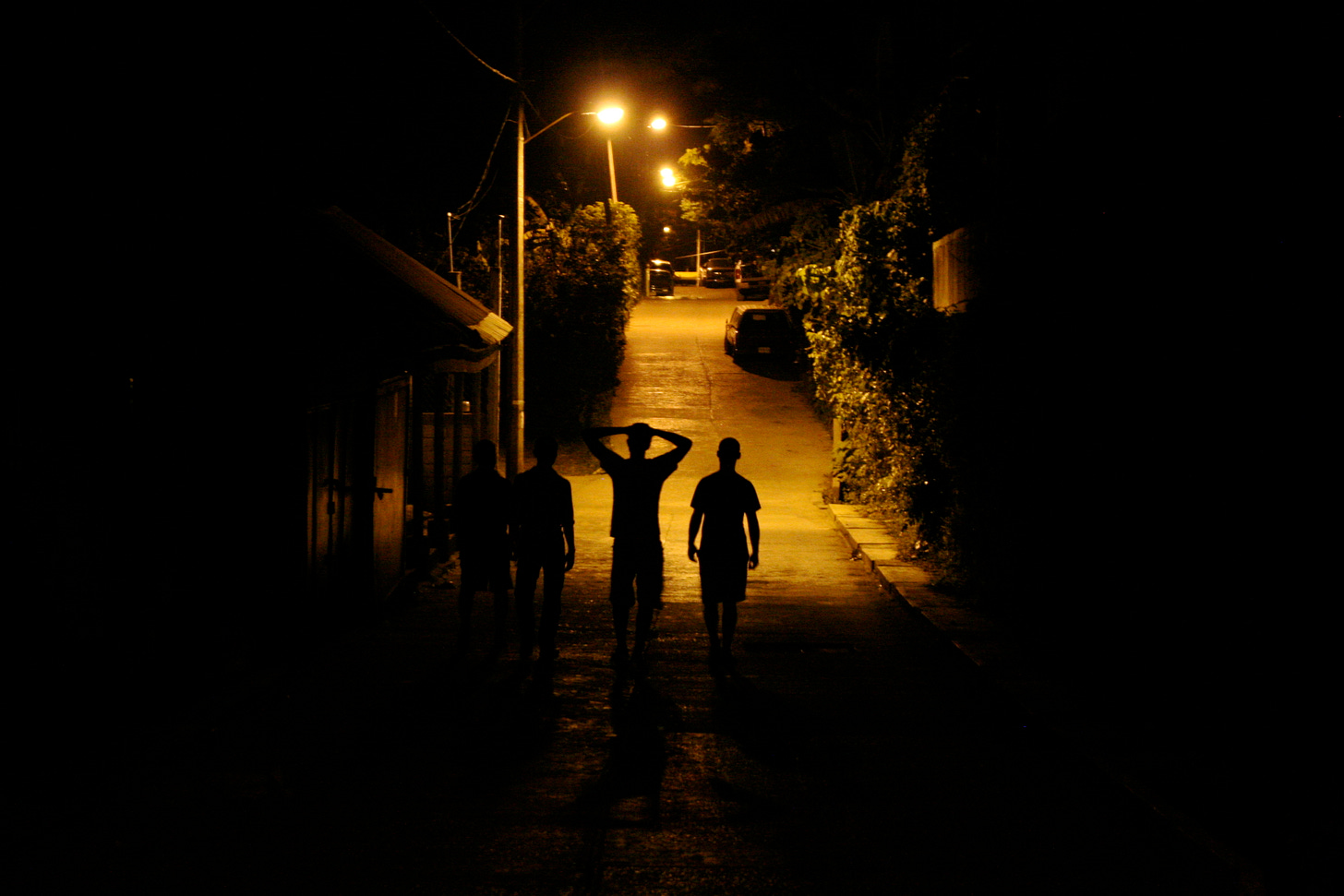

Oh man, so many thoughts on this one.
I've been thinking about friendship obsessively for months (I kinda blame you for that). About its nature, what kind of friend I am to others, why did I left some dear friendships that grew apart in the frizzer instead of making an effort to keep the spark alive, who are my "real" friends and why, and so on.
A friend of mine -one of my closest, or I thought she was- broke my heart recently (real hard... I mean I feel like weeping writing this). And I still feel a bit lost 'cause I don't know how to handle it. How to move from that feeling of disappointment, sorrow and mourning, and where to place that friendship in a new shelf it belongs to. I think that situation was related with the reciprocity you are talking about. And non-aligned expectations. We all have different needs and styles of communication, yes, but also we all have different ways to show love and care. And must times we expect that our friends (and our family or our partners) show us their love a certain way and it's hard when that doesn't happen, no matter how many hours of therapy we have on our records.
Anyway, as you said "there is something beautiful about the midlife search for deep, immersive friendships". Love having this conversation with you, my brilliant friend.
Those first two end notes are critical: the first for obvi reasons and the second because I was thinking "OOOOhhh D R A M A" when word gets out. And you quoted Maya Angelou 🥰. I will push back that AI will never replace friendships, and if you are a person who does replace friendships with AI, then you don't know how to be a friend. Similar argument for VR headsets replacing traveling to see friends, then you don't understand and appreciate the point of travel. The silver lining of both AI and VR headsets is that they are going to remove the fake players from the real ones in life, thus less bullshit for me to wade through.